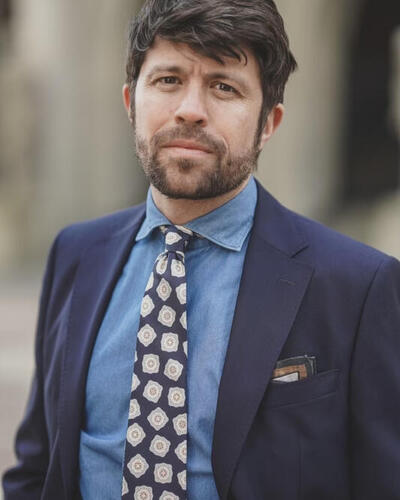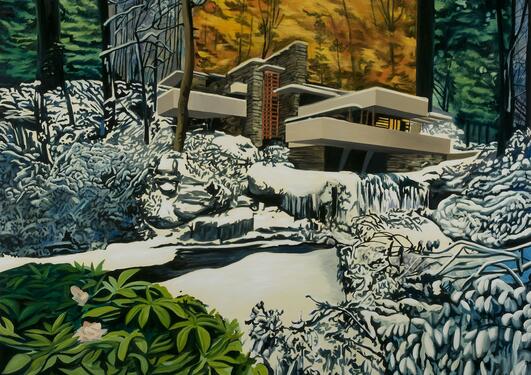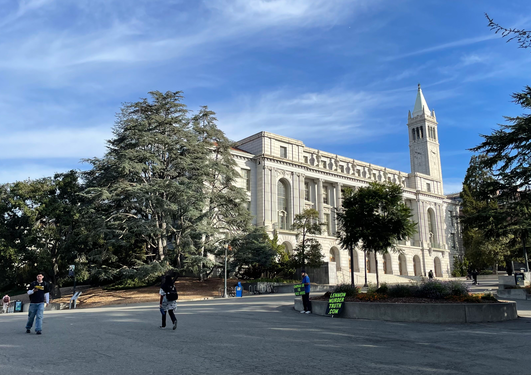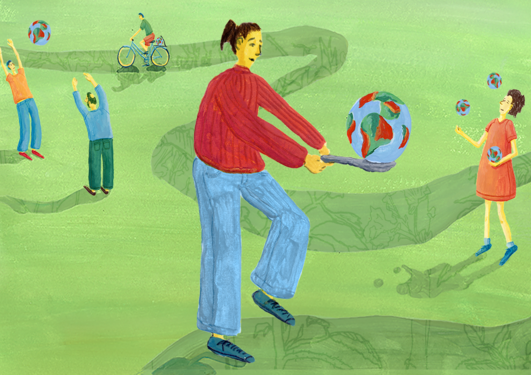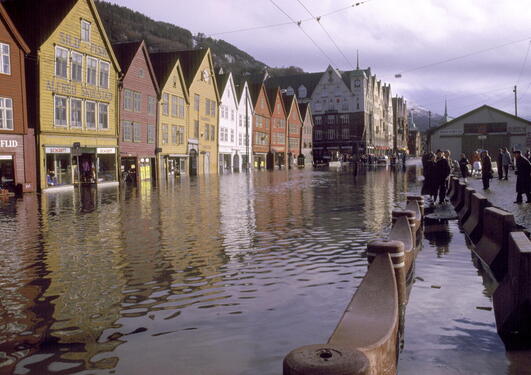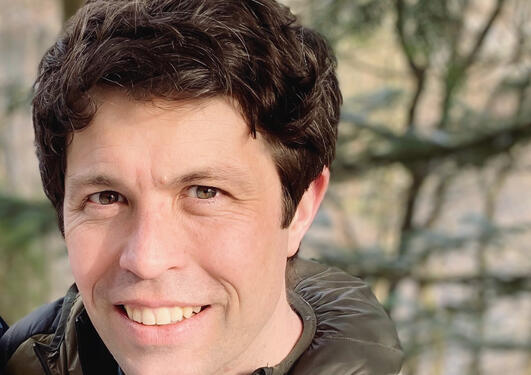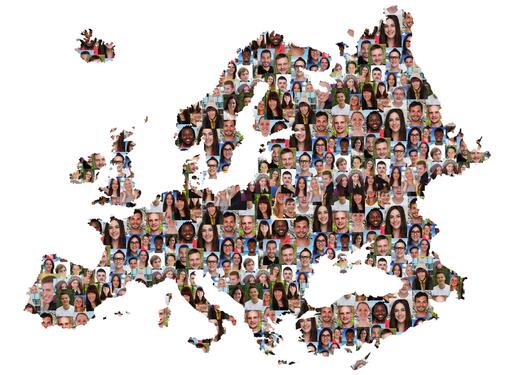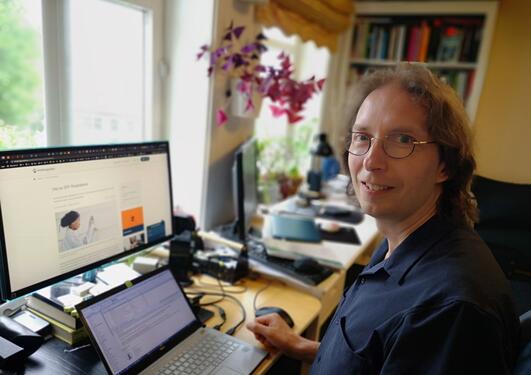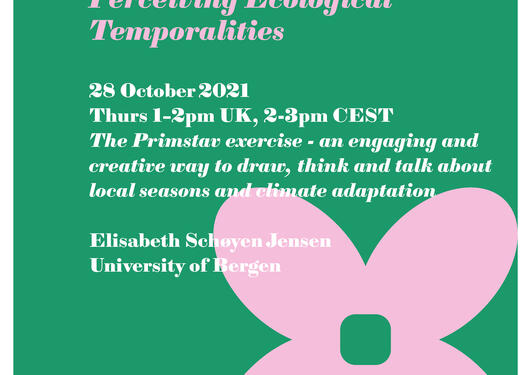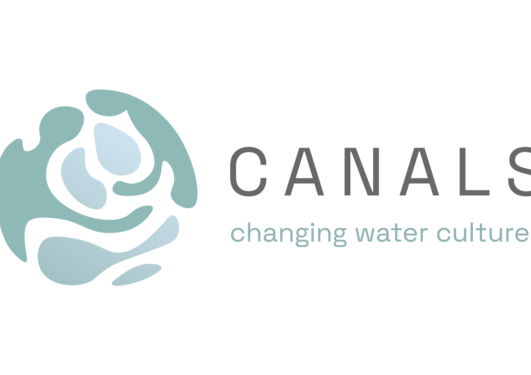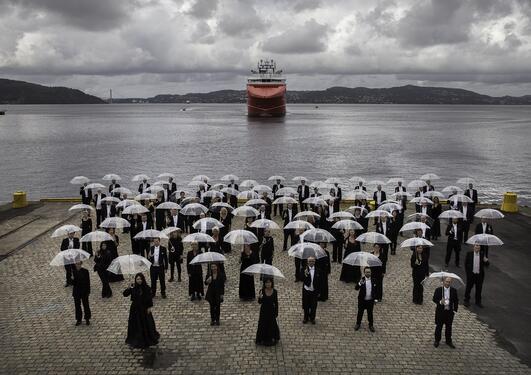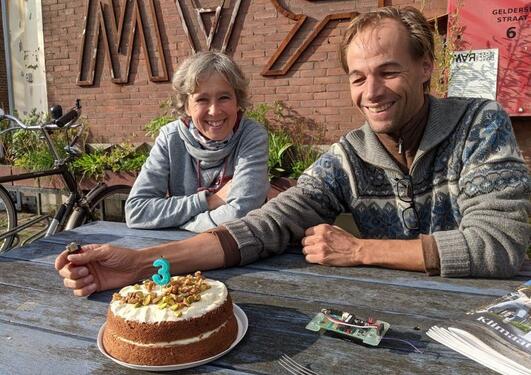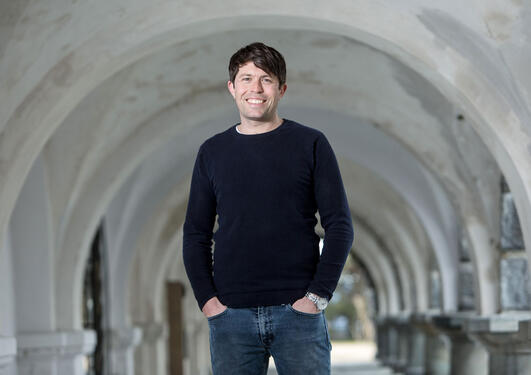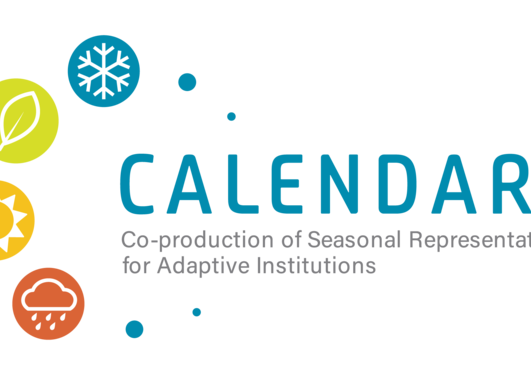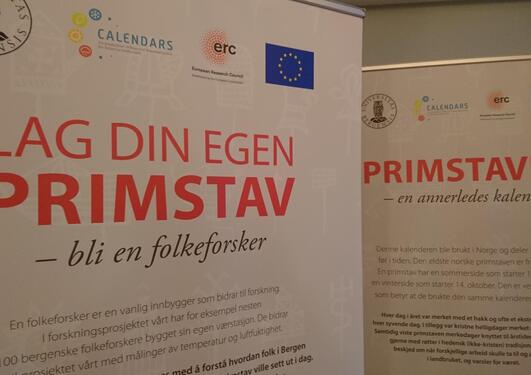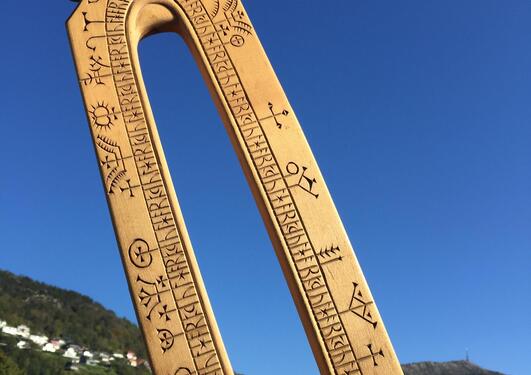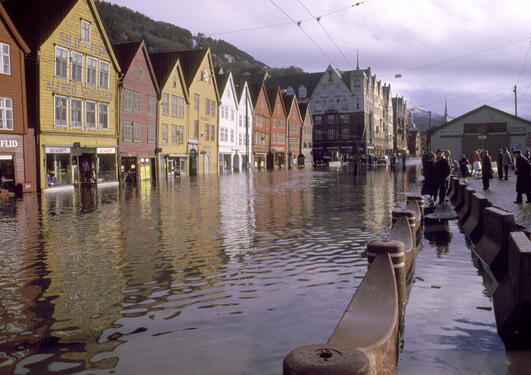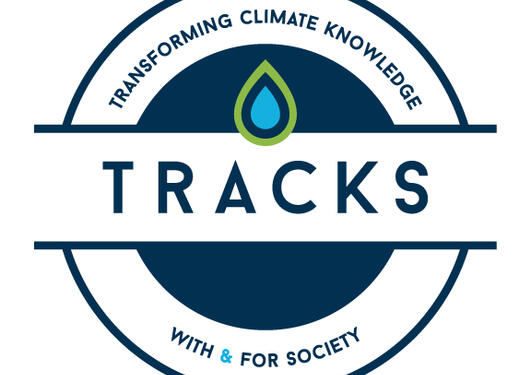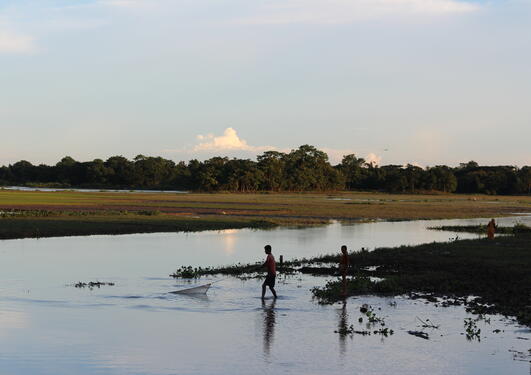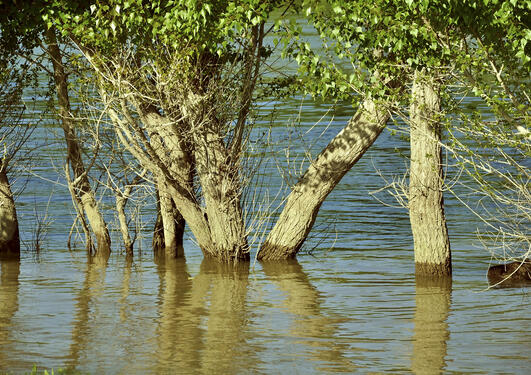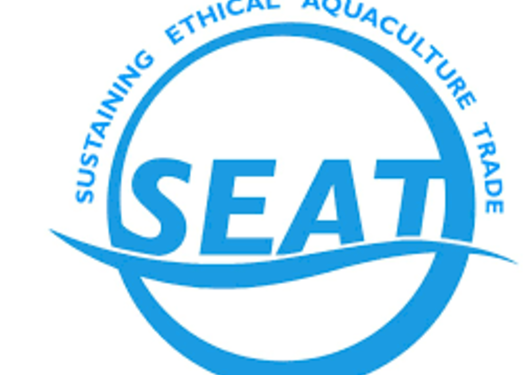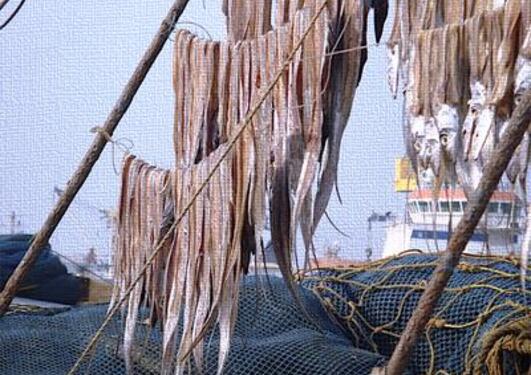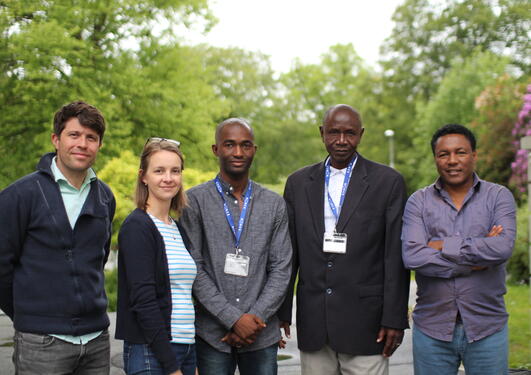- E-postscott.bremer@uib.no
- Telefon+47 55 58 29 85
- BesøksadresseParkveien 9Ida Bloms hus5007 BergenRom201
- PostadressePostboks 78055020 Bergen
Jeg har bakgrunn fra miljøplanlegging, politikkutvikling og styring, og i det siste har jeg jobbet mest med offentlige klimatilpasningstiltak.
Jeg er interessert i hvordan vitenskap og andre måter å vite på blir brukt til å støtte opp om beslutninger og handlinger i styringsinstitusjoner, også i grensesnittet mellom vitenskap og politikkutvikling. I løpet av de siste fem årene har jeg jobbet med å avdekke vår kulturelle og stilltiende kunnskap om klima som vi tar for gitt og som påvirker hvordan individer og grupper tilpasser seg; for eksempel kulturelle rammer for årstider eller forestillinger om tid.
Jeg forsker hovedsakelig i en "utvidet" eller deltakende modus; i samarbeid med grupper i samfunnet søker jeg å samprodusere kunnskap og handling for å møte utfordringene disse står overfor. Jeg har som mål å synliggjøre den kunnskapen som har blitt oversett eller marginalisert, inkludert lokal, tradisjonell og praktisk kunnskap. I forskningen min bruker jeg blant annet perspektiver fra transdisiplinaritet, post-normal vitenskap, samt praktiske tilnærminger til folkeforskning og klimatjenester.
Gjennom min forskning prøver jeg å være aktiv på begge sider av grensesnittet mellom vitenskap og politikkutvikling. Jeg er forsker ved NORCE Climate, hvor jeg jobber tett med klimaforskere for å finne ut hvordan forskningen deres kan kobles til styringsprosesser, blant annet ved Climate Futures-senteret. Jeg er også nestleder for Young Academy of Europe (tilknyttet Academia Europaea) og gir målrettede innspill til europeisk vitenskapspolitikk. Jeg har i tillegg en adjunktstilling ved University of Toronto Scarborough.
I tillegg til forskning brenner jeg for lærerplanutvikling og undervisning innenfor transdisiplinær samproduksjon i praksis, rettet mot forskere tidlig i karrieren. Relatert til dette har jeg nylig vært med på å utvikle forskerskoler i Afrika som en del av det NFR-finansierte CATER-prosjektet.
Jeg er for tiden prosjektleder for det EU-finansierte CALENDARS-prosjektet.
I see important overlaps between how we conduct research and how we communicate it. I'm interested in setting up creative spaces where groups can simultaneously learn from research, and contribute to it.
In the CALENDARS project, we have been asking people in Bergen to re-create the primstav - traditional calendar stick - for contemporary life in the city. We've run workshops in collaboration with Aldea atelier in 2020, and with school children at the science open day 2019.
I've been active in facilitating citizen science initiatives in Bangladesh and Bergen, and for me these are exercises for learning through doing research.
I'm also interested in what we can learn from, and teach, through narratives. For the past five years I have been using film as a research method for communicating narratives and stimulating discussion. See e.g.:
Films about climate in Sylhet, Bangladesh - from February 2016.
‘Aquaculture: Whose sustainability?’ - from November 2012
European seafood consumer preferences - from March 2012
I think it is important to have research discussed in the public sphere, publishing various articles in newspapers and trade journals.
In September 2021, I was interviewed on the BBC program Costing the Earth about how Bangladesh, and specifically Sylhet in the northeast, is adapting to climate change . The episode, called Qasa’s Farm - Building Resilience in Bangladesh, is available until 28 September 2022. We worked with communities in Sylhet in the TRACKS project from 2014-2018, in search of new ways for understanding and adapting to the climate.
Jeg blir regelmessig invitert til å gi gjesteforelesninger ved ulike institutter ved Universitetet i Bergen og NHH (Norges Handelshøyskole), og jeg er foreleser ved The Norwegian Research School in Environmental Humanities (NoRS-EH).
Jeg brenner for lærerplanutvikling og undervisning innenfor transdisiplinær samproduksjon i praksis, rettet mot forskere tidlig i karrieren. Relatert til dette har jeg nylig vært med på å utvikle forskerskoler i Afrika som en del av det NFR-finansierte CATER-prosjektet; en spin-off av ph.d.-kurset Co-producing climate adaptation research som jeg utviklet sammen med andre i oktober 2019.
Jeg var også med på å utvikle og gjennomføre et kurs innenfor transdisiplinær forskning for bachelor- og masterstudenter ved sju ulike europeiske universiteter (rundt 200 studenter). Dette var en del av ARQUS-alliansen som UiB tidligere var medlem av.
For tiden veileder jeg fem stipendiater og to masterstudenter.
- (2024). How seasonal cultures shape adaptation on Aotearoa – New Zealand's Coromandel Peninsula. Global Environmental Change. 1-12.
- (2023). Co-producing representations of summer rainfall in Bangladesh. Regional Environmental Change.
- (2023). Climate change challenges and opportunities for beekeeping in western norway.
- (2023). Carefully transforming our institutions: how they change, how they listen. 10 sider.
- (2022). «Beeware» workshop – kalenderendringer for birøkt på Vestlandet.
- (2022). Recognising the social functions of climate services in Bergen, Norway. Climate Services. 15 sider.
- (2022). Local representations of a changing climate. 21 sider.
- (2022). High-Quality Knowledge for Climate Adaptation: Revisiting Criteria of Credibility, Legitimacy, Salience, and Usability. Frontiers Media S.A..
- (2022). Editorial: High-Quality Knowledge for Climate Adaptation: Revisiting Criteria of Credibility, Legitimacy, Salience, and Usability. Frontiers in Climate.
- (2022). Changing climate, changing beekeeping.
- (2022). Changing beekeeping seasons in Vestland, Norway. 7 sider.
- (2022). Changing Beekeeping Seasons in Vestlandet, Norway .
- (2022). BeeWare- Sesongendringer og klimavarsling i birøkt.
- (2021). Quality Assessment in Co-developing Climate Services in Norway and the Netherlands. Frontiers in Climate. 1-15.
- (2021). Extended Peer Communities: Appraising the contributions of tacit knowledges in climate change decision-making. Futures: The journal of policy, planning and futures studies.
- (2021). Beyond rules: how institutional cultures and climate governance interact. Wiley Interdisciplinary Reviews: Climate Change (WIRESs).
- (2021). A water culture perspective for food security. 6 sider.
- (2020). The role of place-based narratives of change in climate risk governance. Climate Risk Management.
- (2020). Portrait of a climate city: How climate change is emerging as a risk in Bergen, Norway. Climate Risk Management.
- (2020). Local narratives of change as an entry point for building urban climate resilience. Climate Risk Management. 1-15.
- (2020). Grand Challenges for Climate Risk Management. Frontiers in Climate.
- (2019). ‘My new routine’: Assessing the impact of citizen science on climate adaptation in Bangladesh. Environmental Science and Policy. 1-13.
- (2019). Toward a multi-faceted conception of co-production of climate services. Climate Services. 42-50.
- (2019). Panel discussion on citizen science projects in meteorology .
- (2019). Initial Guidance Framework for Knowledge Quality Assessment in CoCliServ (CoCliServ D5.1). .
- (2018). Co-producing "post-normal" climate knowledge with communities in northeast Bangladesh. Weather, Climate, and Society. 259-268.
- (2018). An Evolving Framework for Advancing Climate Services in Norway . EOS.
- (2017). Narrative as a method for eliciting tacit knowledge of climate variability in Bangladesh. Weather, Climate, and Society. 669-686.
- (2017). Have we given up too much? On yielding climate representation to experts. Futures: The journal of policy, planning and futures studies. 72-75.
- (2017). Co-production in climate change research: reviewing different perspectives. Wiley Interdisciplinary Reviews: Climate Change (WIRESs).
- (2017). Climate research, citizen science and art in Bangladesh.
- (2017). Climate research, citizen science and art in Bangladesh.
- (2017). Assessing climatic trends of extreme rainfall indices over northeast Bangladesh. Theoretical and Applied Climatology. 1-12.
- (2017). A critical assessment of knowledge quality for climate adaptation in Sylhet Division, Bangladesh. Climate Risk Management. 43-58.
- (2016). Weaknesses in the ethical framework of aquaculture related standards. Marine Policy. 11-18.
- (2016). Sustainable aquaculture governance: challenges to participatory standard setting. 6 sider.
- (2016). Inclusive governance of aquaculture value-chains: Co-producing sustainability standards for Bangladeshi shrimp and prawns. Ocean and Coastal Management. 13-24.
- (2015). Responsible techno-innovation in aquaculture: Employing ethical engagement to explore attitudes to GM salmon in Northern Europe. Aquaculture. 370-381.
- (2015). Negotiating a place for sustainability science: Narratives from the Waikaraka Estuary in New Zealand. Environmental Science and Policy. 47-59.
- (2015). Climate change and agri-cultural knowledge: Bangladesh through a mirror and magnifying glass. 387-393. I:
- (2015). Know your food. Food ethics and innovation. Wageningen Academic Publishers.
- (2015). Challenges to Evaluating Coastal Management in the Twenty-First Century: Lessons from the Lofoten Archipelago. 20 sider.
- (2014). 'No right to rubbish': Mobilising post-normal science for planning Gisborne's wastewater outfall. Marine Policy. 22-30.
- (2013). Whose sustainability counts? Engaging with debates on the sustainability of Bangladeshi shrimp. 8 sider.
- (2013). Reflexively Mapping the Science-Policy Interface for Coastal Zones. 12 sider.
- (2013). Mobilising knowledge for coastal governance: re-framing the science-policy interface for integrated coastal management. Coastal Management. 56 sider.
- (2013). Mobilising high-quality knowledge through dialogic environmental governance: a comparison of approaches and their institutional settings. International Journal of Sustainable Development. 66-90.
- (2013). Mapping the ethical terrain of Chinese aquaculture. 18 sider.
- (2013). Framing a 'Post-Normal' Science-Policy Interface for Integrated Coastal Zone Management. 13 sider.
- (2013). Exploring the science-policy interface for Integrated Coastal Management in New Zealand. Ocean and Coastal Management. 107-118.
- (2013). Bioscience and Innovation Research: Examining the GM Animals Case with Indian Researchers Using the Ethical Matrix. Asian Biotechnology and Development Review. 1-17.
- (2012). Mapping core values and ethical principles for livelihoods in Asia. 6 sider.
Se fullstendig oversikt over publikasjoner i CRIStin.
Bremer, S. (2012). Framing a ‘post-normal’ science-policy interface for Integrated Coastal Zone Management. In: E. Moksness, E. Dahl, and J. Støttrup (Eds.) Global Challenges in Integrated Coastal Zone Management (pp. 179-191). Sussex: Wiley-Blackwell
Blanchard, A. & Bremer, S. (2012). Reflexively mapping the science-policy interface for coastal zones. In: E. Moksness, E. Dahl, and J. Støttrup (Eds.) Global Challenges in Integrated Coastal Zone Management (pp. 206-217). Sussex: Wiley-Blackwell
Van den Belt, M., Forgie, V., Bremer S., McDonald, G., Lennox, J., Montes de Oca, O., Joy, M., (2010). Modelling tools for adaptive integrated assessment: a case study of New Zealand regional authorities. Research Monograph Series – No. 17. Palmerston North: EERNZ
Bremer, S. (2009). Evaluating the State of New Zealand’s Coastal Management: Application of Integrated Coastal Management Indicators at National and Local Scale. Research Monograph Series – No. 16. Palmerston North: EERNZ. ISBN 978-0-9582949-3-5. ISSN 1176-7251 (print). ISSN 1179-1179 (online)
Pågående og avsluttede prosjekter:
- NFR-finansierte Climate Futures (Senter for fremragende innovasjon):2020-2028 (NORCE)
- EU-finansierte CONFER: Co-production of climate services for East Africa: 2020-2024 (NORCE)
- Marie Curie 'CANALS' Individual Fellowship: Changing water cultures: 2021-2022 (UiB)
- ERC Starting Grant: CALENDARS: Co-production of seasonal representations for adaptive institutions: 2019-2023 (UiB)
- JPI ERA4CS-finansierte CoCliServ: Co-development of place-based climate services for action: 2017-2020 (UiB)
- NFR-finansierte Understanding Cultural Conditions of Climate Change Adaptation: 2015-2017 (UiB)
- NFR-finansierte TRACKS: Transforming Climate Knowledge with and for Society: 2014-2017 (UiB)
- EU-finansierte SEAT: Sustaining Ethical Aquaculture Trade: 2011-2013 (UiB)
- EU-finansierte PEGASUS Project: Public Perception of Genetically Modified Animals - Science, Utility and Society: 2010-2011 (UiB)
- EU-finansierte SPICOSA: Science and Policy Integration for Coastal System Assessment: 2007-2011 (University of Versailles Saint-Quentin)
- Doctor of Philosophy: Massey University New Zealand; "Exploring a 'post-normal' science-policy interface for Integrated Coastal Management"
- Postgraduate Certificate in Public Policy: University of Victoria, New Zealand
- Bachelor of Resource and Environmental Planning (Hons.): Massey University, New Zealand
